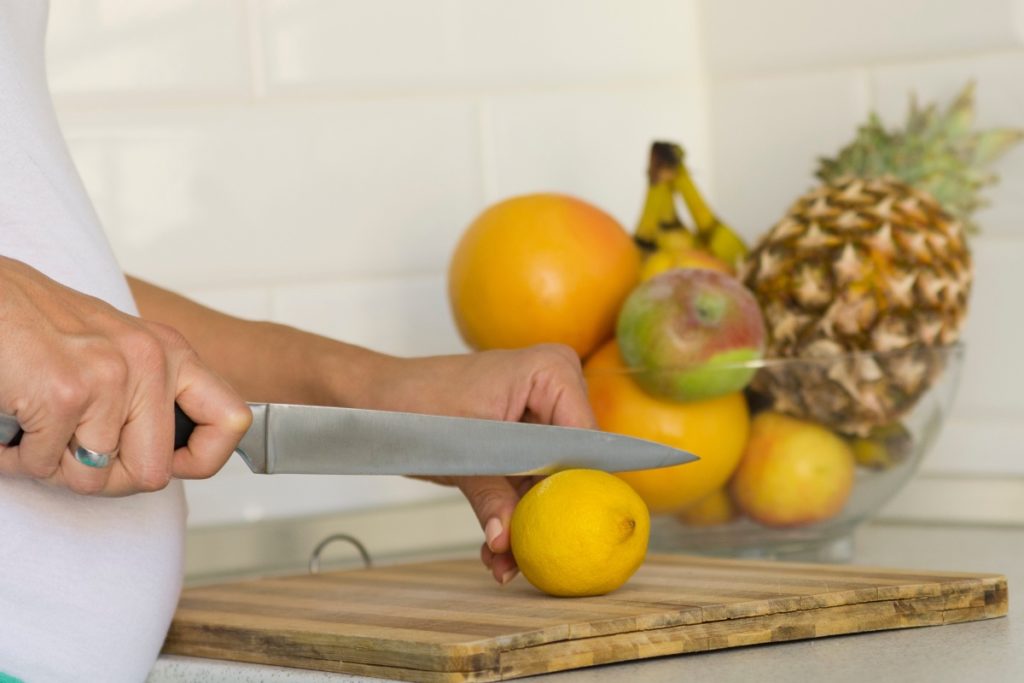Prenatal nutritionist – Why I wish I had one!
June 29, 2022
When I was first pregnant, the only thing I was told was to take a prenatal vitamin and not to eat raw fish. (Not a problem for me considering, I don’t like fish anyway) But I thought to myself there has to be more I can do for my body and my growing baby, if only I had a prenatal nutritionist to help me.

My OBGYN is a great doctor but he didn’t provide much guidance on what to eat and how to improve my energy levels and nausea. Hoping a web search would provide me with useful information, only left me more confused! Off to my local library (circa 2007) to find some nutrition textbooks sucked me into the fun world of nutrition, more on that later.
This article is going to help you take the guessing and confusion out of prenatal nutrition and keep reading for nutrition tips that can help you during your pregnancy and after and possible consider working with a prenatal nutritionist.
Advice from a Prenatal Nutritionist
The general guidance to “eat healthy” when you’re pregnant or planning is not helpful. Believe it or not, it was my pregnancy that made me switch from fashion designer to registered dietitian! I became the prenatal nutritionist I needed, when I was pregnant.
Prenatal nutrition is not just crucial during pregnancy, but prior too. Eating an overall nutritious and balanced diet is one of the most important ways to take care of you and your growing baby.
Nutrition influences the development of all body systems, as well as metabolism. In addition to eating healthy foods, it’s recommended to take a prenatal vitamin with at least 400 micrograms of folic acid, starting at least 1 month before pregnancy by the American College of Obstetricians and Gynecologists (ACOG). A prenatal nutritionist can help determine the appropriate supplement for you.
While your overall eating pattern plays a role before and during pregnancy, there are a few key nutrients to focus on to ensure your baby’s development and they are;
Protein, Omega 3 and specific vitamins and minerals (micronutrients) which I’ll discuss shortly.
First let’s talk about protein.
Key Nutrients in the Prenatal Diet : Protein
As your baby grows, your protein needs increase. Protein acts as a building block for muscle, skin, blood, and other cells. To meet protein needs in the prenatal period, eat a variety of protein sources such as
- Fish
- Lean meat such as poultry
- Eggs
- Dairy products
- Plant based sources- beans, lentils, tofu, edamame, nuts, and seeds.
If you’re a vegetarian or vegan, it’s absolutely possible to meet protein needs during pregnancy. Speak to your prenatal nutritionist to help you determine the right amount of protein for your meal plan.
Now I’ll fill you in on Omega 3’s.
Key Nutrients in the Prenatal Diet: Omega-3 Fatty Acids
Early in pregnancy, your baby’s developing brain requires omega-3 fatty acids.
During pregnancy, consuming enough omega-3s is associated with reduced maternal depression, a decrease in the incidence of preterm birth, reduced allergies and asthma in children, and improved neuro-cognitive outcomes in children.
There are three types of omega-3s:
- Alpha-linoleic acid (ALA) found primarily in nuts and seeds
- Docosahexaenoic acid (DHA)
- Eicosapentaenoic acid (EPA) found in oily fish like salmon, tuna, and sardines
The most important during the prenatal period is DHA and EPA. Fish is the main source of omega 3’s followed by nuts and seeds. If fish isn’t your thing like me, discuss taking an omega-3 supplement with your prenatal nutritionist.
Still with me? We talked about the importance of protein and omega-3 fatty acids but those aren’t the only essential nutrients during pregnancy.
Key Nutrients in the Prenatal Diet: Micronutrients
Think of it this way, your baby is growing and you are supplying the nutrients. Your baby is going to take what it needs from you. If you don’t have enough of these specific nutrients there is a risk for deficiency.
It’s important you consume enough of these specific micronutrients;
- Folate
- Iron
- Calcium
- Vitamin D
Not to scare you but a deficiency in any of the micronutrients can affect fetal development and also have long-term health consequences for both you and your baby. A prenatal nutritionist can help you with this and reading further will shed some light on these micronutrients.
Folate during Pregnancy
A developing baby’s brain also requires folate, a B-vitamin in addition to omega- 3’s. Folate helps with cell division, which happens at a rapid pace during pregnancy.
Folic acid is the synthetic form of folate found in supplements and fortified foods. The body can absorb folic acid better than folate found in whole foods.
The recommended dietary allowance (RDA) for folate in women of childbearing age is 400 micrograms per day, and this increases to 600 micrograms per day during pregnancy. Incorporating folate rich foods like leafy greens, peas, beans, and lentils with your prenatal can help you meet your needs.
Iron during Pregnancy
Iron status is imperative for you and your baby. Unfortunately, iron deficiency is more common than it should be. Iron deficiency affects over 30% of pregnant women in developed countries and up to 50% of pregnant women worldwide.
Iron is a mineral that makes up hemoglobin, which transports oxygen to body cells.
For mothers, iron deficiency during pregnancy is associated with decreased immune function and a future increased risk of heart disease. For babies, iron deficiency is associated with an increased risk for preterm birth, low birth weight, and abnormal development and cognitive function.
During pregnancy, the RDA for iron increases by 50% from 18 mg to 27 mg per day.
Foods that are a good source of Iron
- Fish
- Meat
- Dark leafy greens
- Beans, lentils, and fortified foods
Your body absorbs iron better when it comes from animal foods. Plants are a good source of iron however to improve absorption in plant foods, consume it with a vitamin C source like citrus, peppers, broccoli, and cauliflower.

Throughout your pregnancy your practitioner should be testing your iron status. A prenatal nutritionist can help you with meal plan incorporating iron rich foods and evaluate if there is a need for an iron supplement.
Calcium and Vitamin D during Pregnancy
In general, calcium is an important mineral for women. Calcium supports bone, teeth, heart, nervous system, and muscle development and calcium becomes more important during pregnancy.
Not consuming enough calcium, may increase your risk for hypertension and osteopenia, (a weakening of the bones), as well as muscle conditions. Inadequate calcium during pregnancy may increase the risk of your baby being a low birthweight, have delayed growth and poor bone mineralization.
The need for calcium is most important during your third trimester when bone mineralization occurs at the most rapid pace. For pregnant women, the RDA for calcium is between 1,000 and 1,300 mg per day depending on age.
Good Sources of Calcium are
- Dairy products
- Plant foods – Nuts, fortified foods such as some soy milks.
- Leafy green vegetables
Increased calcium needs can usually be met by diet alone, though supplementation may be recommended for some.
Your body needs vitamin D to help absorb calcium. For women of childbearing age and pregnant women, the RDA for vitamin D is 15 micrograms per day. You can get vitamin D from sunlight, foods, and supplements.
Fatty fish such as salmon and fortified dairy products are the best sources of vitamin D. It can be difficult to reach needs through sunlight (thanks to sunscreen, we don’t want sunburns!) and food alone. Talk to your prenatal nutritionist about whether a vitamin D supplement is right for you.
Phew! Let’s take a moment and absorb all that information.
In conclusion, if you are trying to have a baby or if you are pregnant, there is so much that can feel out of your control. However, you can choose what you eat. A balanced prenatal way of eating can suit all cuisines, preferences, and budgets.
Take it one meal at a time. Each meal is an opportunity to nourish yourself and your growing baby.
If you want to work with me check out my services and how I can help you further.
To have handy guide saved to your phone, download my Ultimate Guide to Nutrition & Prenatal Care
Marissa Perrotta is a registered dietitian and registered yoga teacher speciailizing in womens’ health and family nutrition. Owner of Plantable Nutrition & Wellness, A place of love and health for all families.